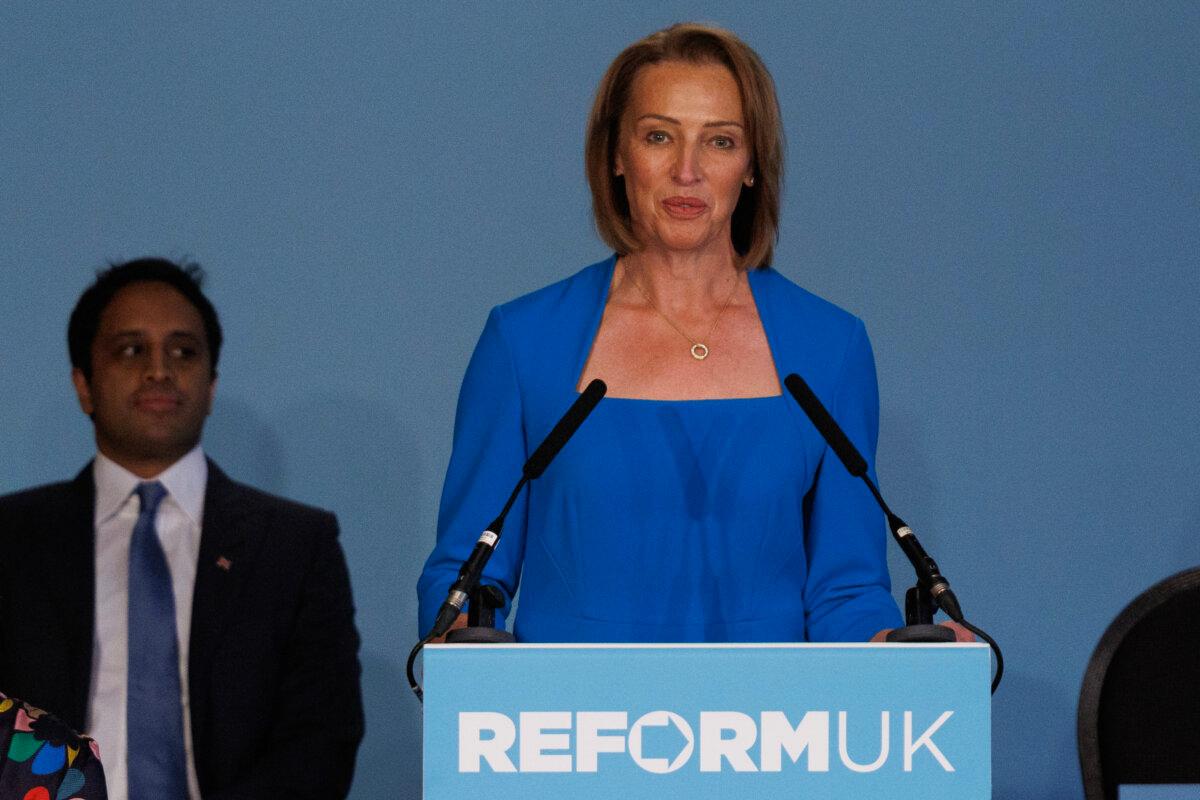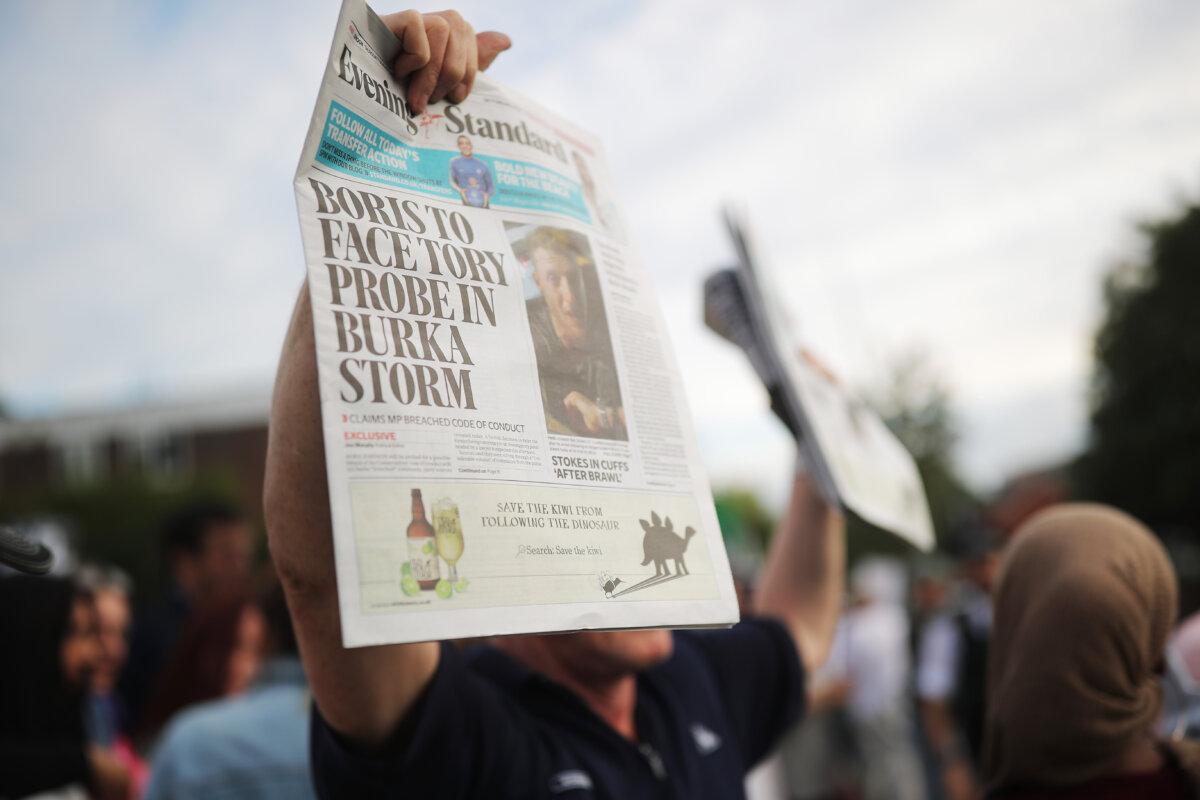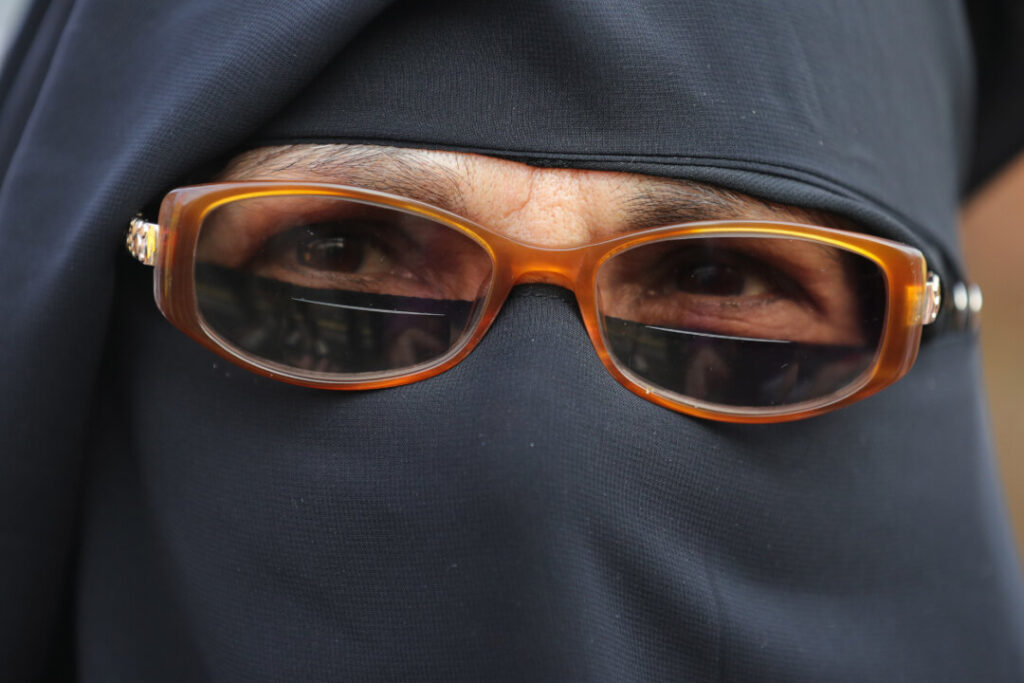Burqa ban proposals return to the spotlight in British politics following a renewed push by Reform UK MP Sarah Pochin.
Calls by British MPs to ban burqas have reignited public debate over the wearing of Islamic face veils in public spaces.
The burqa, the most concealing of all Islamic veils, covers the face and body, typically leaving only a mesh screen for the wearer to see through.
Starmer dismissed the suggestion, saying, “I am not going to follow her down that line.”
Pochin’s proposal revealed internal divisions within Reform and opened the floodgates for broader political commentary.
He resigned on Thursday, citing that continuing in his role was no longer a “good use of my time.”
Tice called for a “national debate” and questioned whether burqa-wearing women were truly making a free choice.
“If you care about freedom, care about the women forced to wear the burqa. It’s time to ban the burqa,” the group said.

Zia Yusuf sits behind Sarah Pochin as she speaks at a Reform UK press conference in London on May 27, 2025. Dan Kitwood/Getty Images
But not all responses aligned with this view, as Liberal Democrat and Labour MPs pushed back.
Tapp added that if a woman is being forced to wear an item of clothing, “then that’s likely to be part of a bigger problem within that relationship.”
He said the government is working to strengthen laws addressing violence against women and girls, including coercive control, making it as serious as physical abuse.
“Instead, we will continue to focus on what matters to all Britons: the cost of living crisis, the strain on our NHS, and the need for unity, dignity, and real solutions,” it said.
Recurring Debate in the UK
This is far from the first time the UK has grappled with whether to regulate or ban Islamic face veils such as the burqa and niqab.
While no nationwide ban has been enacted, the topic has surfaced periodically over the past two decades.
The UK has repeatedly debated banning Islamic face veils like the burqa and niqab, but no national law has ever been passed.
The issue gained attention in 2006, when then-Foreign Secretary Jack Straw publicly expressed discomfort with face veils, sparking national discussion and controversy.

Local people protest following comments made by former Foreign Secretary Boris Johnson against the wearing of Burkas by Muslim women, outside the Hillingdon Conservative Association office in Uxbridge, England, on Aug. 9, 2018. Christopher Furlong/Getty Images
His remarks were widely condemned as Islamophobic, though he defended them as a critique of oppressive dress codes.
Bans Across the Continent
Several European nations have already implemented full or partial bans on face-covering garments such as the burqa, often citing national security, social cohesion, and secularism.
France led the way in 2011 with a nationwide public ban.
In Germany, while some states prohibit face veils in schools and public spaces, there is no nationwide ban on wearing them publicly.
In 2021, the EU’s highest court ruled against two Muslim women in Germany who were suspended from their jobs for wearing hijabs at work, saying employers may require employees not to wear religious clothing if they work in a job that deals with the public.
However, governments argue they are essential for promoting open communication and safeguarding public order.
The group, which includes leading legal and community figures, is expected to present its recommendations by August 2025.
PA Media contributed to this report.



